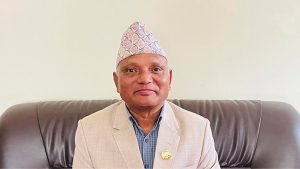
WHO launches suicide awareness campaign in Africa

The World Health Organization (WHO) launched Thursday a campaign to raise awareness and spur action for suicide prevention in the African region, which has the world’s highest rates of death by suicide.
Around 11 people per 100,000 per year die by suicide in the African region, higher than the global average of nine per 100,000 people. This is due in part to insufficient action to address and prevent the risk factors, including mental health conditions which currently affect 116 million people, up from 53 million in 1990, according to a statement made by the WHO regional office for Africa.
The social media campaign, launched ahead of World Mental Health Day which falls on Oct. 10, aims to reach 10 million people across the African region to raise public awareness and galvanize the support of governments and policymakers to increase focus and funding for mental health programming, including suicide prevention efforts.
Such efforts include equipping health workers to better support those dealing with suicidal thoughts, educating people who may experience these thoughts on where to go for help as well as sensitizing the public on how to identify and help those in need and to help tackle the stigma associated with suicide, epilepsy, mental health conditions and alcohol and drug abuse.
“Suicide is a major public health problem and every death by suicide is a tragedy. Unfortunately, suicide prevention is rarely a priority in national health programs,” said Matshidiso Moeti, WHO regional director for Africa. “Significant investment must be made to tackle Africa’s growing burden of chronic diseases and non-infectious conditions such as mental disorders that can contribute to suicide.”
Mental health problems account for up to 11 percent of the risk factors associated with suicide. This year’s World Mental Health Day is being marked under the theme “Make Mental Health and Well-Being for All a Global Priority” to draw attention to the importance of mental health care and the need for better access to health services.
Due to the low investment in mental health services, the African region has one psychiatrist for every 500,000 inhabitants, which is 100 times less than the WHO recommendation. Additionally, mental health workers are mostly in urban areas, with primary and community health facilities having very few if any.
“Mental health is integral to wholesome health and well-being yet far too many people in our region who need help for mental health conditions do not receive it. It’s time for radical change,” said Moeti. “Ongoing efforts by countries should be reinforced and broadened to make mental health care a public health priority in the African region.”














Comments